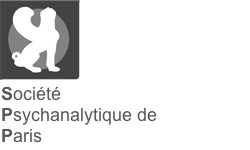|
Résumé :
|
This article attempts to reveal something different about the afterlife of a number of innovations made in British psychiatry during World War II – in particular around the notion of leadership – by reading them in a much broader context which includes Jacques Lacan's article ‘Logical Time and the Assertion of Anticipated Certainty’ (1945). Within such a broader trajectory, considerations of leaders and leaderlessness, which pressed towards democracy and egalitarianism, intersect (paradoxically) with other currents, equally radical, which envision a totalizing reduction of individuals to a technocratic mass. The article's starting point is Jacques Lacan's high praise of British military psychiatry – in particular of W.H. Bion, John Rickman and John Rawlings Rees, consulting psychiatrist to the army during the war. It then weighs Lacan's description of their achievements against a historical account of where such experiments led in the post-war context, and the social functions envisaged for them, that differed from those Lacan hoped they could perform. It concludes with a comparison of Lacan's article ‘Logical Time’, his first published after reading Bion and Rickman, to the contemporary work of Friedrich von Hayek, the early theorist of neoliberal economics, to illustrate the profound ambiguity which exists within the political implications of psychoanalytic theories of groups.
|





